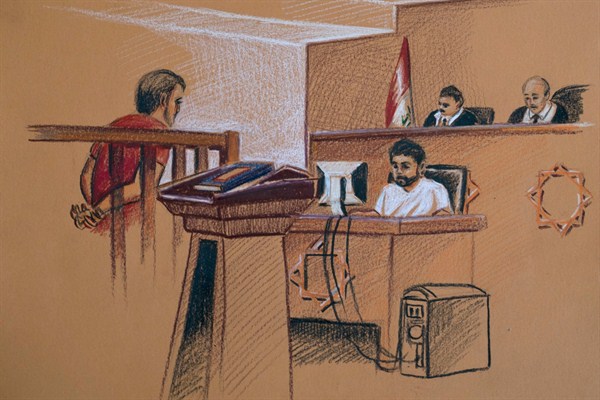Although the Islamic State continues to carry out sporadic attacks in parts of Iraq, the focus across the country has largely turned to post-conflict reconstruction and reconciliation. Harsh sentences are being meted out to suspected Islamic State militants and their collaborators. The Associated Press reported in March that 19,000 people have been detained or imprisoned on suspicion of connections to the extremist group. Of those, 3,000 have been sentenced to death. Meanwhile, a growing backlog of cases and a dearth of available evidence have stymied efforts to compensate victims. In an email interview, Ali Al-Mawlawi, head of research at the Al-Bayan Center for Planning and Studies in Baghdad, discusses the challenges of transitional justice and reconciliation in Iraq.
World Politics Review: How is Iraq addressing the challenge of transitional justice in territories liberated from the Islamic State, and what are the shortcomings and likely consequences of its current approach?
Ali Al-Mawlawi: The government’s current focus involves a combination of stabilization efforts and judicial measures. Ensuring the safe return of Iraqis who were displaced from their homes over the course of the past four years is still a humanitarian imperative. While nearly 4 million people who had been internally displaced have now returned home, some 2 million still have not. Addressing the immediate needs of these communities is an essential component of transitional justice because it creates space to address deeper underlying grievances, including those related to war crimes committed by the Islamic State. Liberated territories need to be safe and secure; basic services including water and power need to be restored; and essential infrastructure needs to be rebuilt. Such stabilization is a core part of rebuilding trust between communities and the local and national authorities. However, reports suggest that Islamic State cells are still carrying out targeted attacks in Kirkuk and Diyala, as part of a deliberate campaign to intimidate local residents and undermine their trust in authorities.

